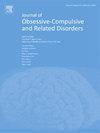Psychedelics, OCD and Related Disorders: Setting methodological strategies for future studies
IF 1.5
4区 医学
Q3 PSYCHIATRY
Journal of Obsessive-Compulsive and Related Disorders
Pub Date : 2025-03-19
DOI:10.1016/j.jocrd.2025.100951
引用次数: 0
Abstract
Background
There is interest in the potential of psychedelics as treatments for Obsessive-Compulsive and Related Disorders (OCRDs), though research in this field is still at an early stage. In this review, we examine the methodological issues present in existing research investigating the use of psychedelics in OCRDs, as a basis for improved trial design.
Methods
We searched PubMed and PsycInfo for published studies and Clinicaltrial.gov for unpublished studies investigating the use of psychedelic in individuals with OCRDs. We reviewed the identified studies and described the main methodological issues undermining study outcomes. We analyzed the published selected papers using standard tools (Cochrane Risk of Bias for Non-Randomized Studies, ROBINS-I).
Results
We found just two published and seven unpublished studies. Risk of bias analysis revealed a critical risk of bias, primarily related to experimental design (e.g., absence of adequate control condition), expectation bias among study participants and problems ensuring adequate blinding. The analysis of unpublished studies, although limited, identified parallel concerns, while also highlighting the implementation of promising strategies for advancing the field.
Discussion
There is a shortage of unbiased evidence. Although the shortcomings in the design of the few existing studies raise important concerns, early potential efficacy justify further, well-designed research. Potential strategies, some of which already implemented in ongoing studies, to address current issues and improve the validity of future studies include the use of blinded raters and of a credible control (such as virtual reality), the choice of a lower drug dose and the inclusion of only drug-naive subjects.
致幻剂、强迫症及相关疾病:为未来研究制定方法学策略
背景虽然该领域的研究仍处于早期阶段,但人们对迷幻药治疗强迫症及相关疾病(ocds)的潜力很感兴趣。在这篇综述中,我们研究了现有研究中存在的方法问题,作为改进试验设计的基础。方法我们在PubMed和PsycInfo网站上检索已发表的研究,在Clinicaltrial.gov网站上检索未发表的研究,调查迷幻药在ocrd患者中的使用。我们回顾了已确定的研究,并描述了影响研究结果的主要方法学问题。我们使用标准工具(Cochrane Risk of Bias for non - random Studies, ROBINS-I)分析已发表的精选论文。结果:我们只发现了两项已发表的研究和七项未发表的研究。偏倚风险分析揭示了一个关键的偏倚风险,主要与实验设计(如缺乏适当的控制条件)、研究参与者的期望偏倚以及确保适当的盲法的问题有关。对未发表的研究的分析虽然有限,但确定了类似的问题,同时也强调了执行有希望的战略以推进该领域。缺乏公正的证据。尽管少数现有研究的设计缺陷引起了人们的关注,但早期的潜在疗效证明了进一步设计良好的研究是合理的。解决当前问题和提高未来研究有效性的潜在策略,其中一些已经在正在进行的研究中实施,包括使用盲法评分和可信对照(如虚拟现实),选择较低的药物剂量和只纳入未接触药物的受试者。
本文章由计算机程序翻译,如有差异,请以英文原文为准。
求助全文
约1分钟内获得全文
求助全文
来源期刊
CiteScore
4.00
自引率
5.60%
发文量
46
审稿时长
47 days
期刊介绍:
Journal of Obsessive-Compulsive and Related Disorders (JOCRD) is an international journal that publishes high quality research and clinically-oriented articles dealing with all aspects of obsessive-compulsive disorder (OCD) and related conditions (OC spectrum disorders; e.g., trichotillomania, hoarding, body dysmorphic disorder). The journal invites studies of clinical and non-clinical (i.e., student) samples of all age groups from the fields of psychiatry, psychology, neuroscience, and other medical and health sciences. The journal''s broad focus encompasses classification, assessment, psychological and psychiatric treatment, prevention, psychopathology, neurobiology and genetics. Clinical reports (descriptions of innovative treatment methods) and book reviews on all aspects of OCD-related disorders will be considered, as will theoretical and review articles that make valuable contributions.
Suitable topics for manuscripts include:
-The boundaries of OCD and relationships with OC spectrum disorders
-Validation of assessments of obsessive-compulsive and related phenomena
-OCD symptoms in diverse social and cultural contexts
-Studies of neurobiological and genetic factors in OCD and related conditions
-Experimental and descriptive psychopathology and epidemiological studies
-Studies on relationships among cognitive and behavioral variables in OCD and related disorders
-Interpersonal aspects of OCD and related disorders
-Evaluation of psychological and psychiatric treatment and prevention programs, and predictors of outcome.

 求助内容:
求助内容: 应助结果提醒方式:
应助结果提醒方式:


